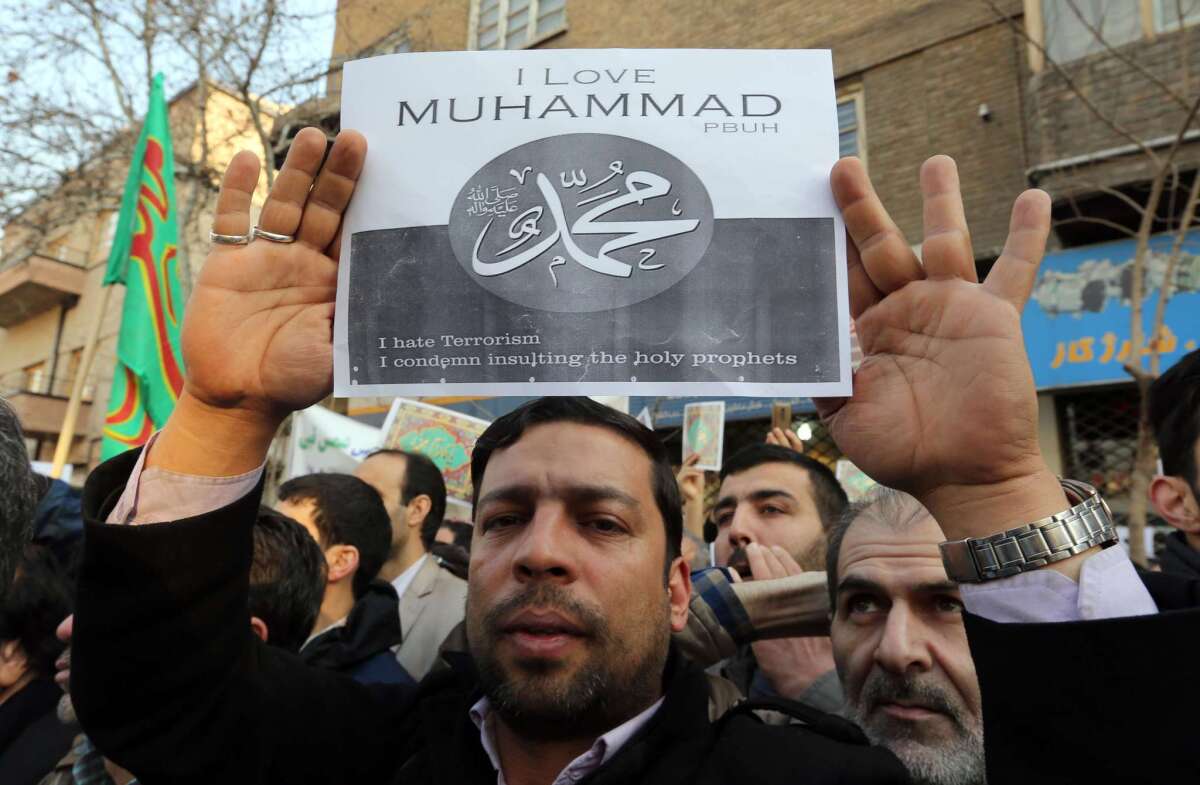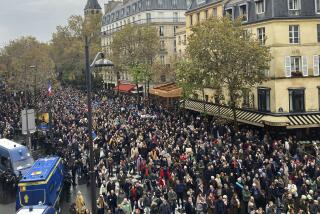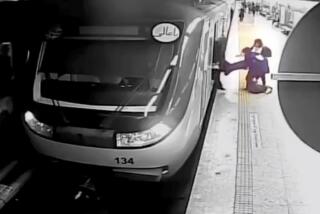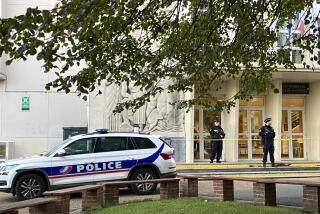Iranians march on French Embassy, denounce Charlie Hebdo

Hundreds of outraged Iranians marched outside the French Embassy in Tehran on Monday to protest what participants called anti-Islamic caricatures published in the French satirical newspaper Charlie Hebdo.
Placards hoisted aloft read “Death to France,” and some participants called for the expulsion of the French ambassador. The protest tied up traffic near the embassy in central Tehran. But the event was peaceful and well organized, in contrast to violent protests elsewhere in the Muslim world.
“We love our prophet,” said a marcher, Maryam, who declined to give her last name for privacy reasons. “Freedom of speech does not imply insulting our prophet.”
On Jan. 7, a pair of Islamic militant brothers with assault rifles attacked the Paris offices of Charlie Hebdo, apparently because they were outraged about its caricatures of Muhammad. A dozen people were killed in the assault on Charlie Hebdo; five more died in subsequent related attacks in Paris.
The Iranian government officially condemned the Paris terrorist strikes.
Last week, Charlie Hebdo published a post-massacre edition with a caricature of a tearful Muhammad on the cover holding a sign saying, “Je suis Charlie” -- I am Charlie. The phrase has become a global slogan of solidarity with the victims of the attack and in support of free speech. Millions of copies of the latest issue of Charlie Hebdo have been sold.
But the provocative cover has sparked indignation across the Muslim world. Critics say freedom of speech is being used as a guise to mock religious beliefs.
Political hard-liners in Iran appeared to be behind Monday’s protest. Some participants demanded an apology from Iranian Foreign Minister Mohammad Javad Zarif, apparently because he recently passed through Paris. Zarif is close to President Hassan Rouhani, a cleric regarded as a moderate and distrusted by many hard-liners. The Foreign Ministry has denounced the caricatures in the French publication.
In a symbolic gesture, protesters proclaimed that the street where the French Embassy is situated had been dubbed “Muhammad the messenger of God.”
After the triumph of the 1979 Islamic revolution, the street was officially renamed Neauphle-le-Chateau, after the French village where Ayatollah Ruhollah Khomeini lived while in exile before returning to Iran to lead the revolutionary government.
Mostaghim is a special correspondent. Times staff writer Patrick J. McDonnell in Beirut contributed to this report.
Follow @mdcneville for news from the Middle East.
More to Read
Start your day right
Sign up for Essential California for news, features and recommendations from the L.A. Times and beyond in your inbox six days a week.
You may occasionally receive promotional content from the Los Angeles Times.






